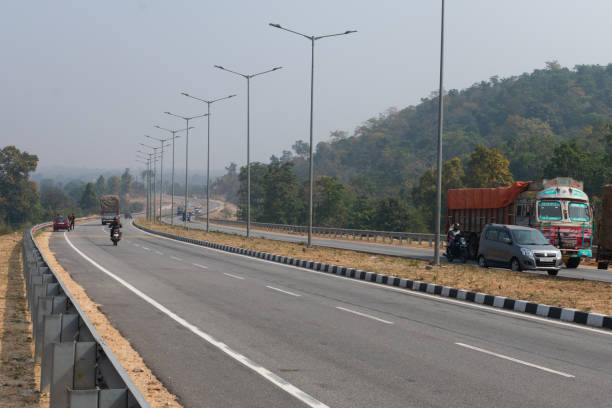Representatives of three sub-national transport bodies (SNTB) have described the “profound impact” that the Department for Transport’s (DfT’s) delays to major road schemes has on their regions’ planning and strategic decision making. SNTBs are statutory transport organisations that encompass numerous local councils and provide strategic governance on a larger scale than individual local transport authorities. During the Transport Select Committee oral evidence hearing last week, representatives of Transport for the North (TfN), Midlands Connect and England’s Economic Heartland (covering Swindon to Cambridgeshire) were asked to speak about their experiences working with the DfT and National Highways to develop and deliver major schemes on the strategic road network under National Highway’s five year Roads Investment Strategy (RIS) funding periods. The trio were specifically asked about how the government’s recent decision to delay several road schemes and leave dozens more in uncertainty affects their ability to plan overall transport strategy in their regions. Midlands connect chief executive Maria Machancoses was severe in her summation, saying that having a scheme included in the RIS programme is “no longer a guarantee of delivery” and that this creates uncertainty among investors, companies and housing developers. She said that schemes that have been “10 years in the making” will have to be reviewed. “This is absolutely not good for the country,” she added. “There’s business cases that have been developed for such a long time, but now we will have to spend more resources refreshing them. It impacts all angles of the industry, the sector – public as well as private.” TfN director for rail and road Darren Oldham said that the delays were for “understandable reasons” but that “they have very profound impact on planning and strategic decisions around them”. He said that more certainty over funding was “absolutely crucial” because it not only impacts on road decisions but has an effect on the communities that are served by the highways.

England’s Economic Heartland Managing Director.
Naomi Green said that delaying schemes to ensure they are the right thing to do is good practice, but that “a lot of those conversations can happen earlier on in the scheme development process”. She added that pushing back the schemes is “creating inflexibility in the RIS programme” and “ties National Highways’ hands behind [its] back” when it comes to reacting to opportunities. Green gave a hypothetical example of a housing developer offering to pay 50% towards a new road scheme, but “if there’s not funding available for five or 10 years ahead, then that development opportunity may well go, because the money’s just not there to match fund that”. During the second session of the Transport Select Committee hearing, roads minister Richard Holden was challenged on whether the DfT and National Highways’ engagement with SNTBs is appropriate. Holden responded: “I certainly think there’s always more that can be done. I’m glad that the relationship between National Highways and the sub national transport bodies has improved.” DfT director general for roads, places and environment Emma Ward added: “I genuinely believe that National Highways works very hard to engage sub national transport bodies. That is done on an agreed process and framework that is clear to both parties, and that runs through the entirety of the process, all the way from development of pipeline schemes and consideration of route strategies all the way to delivery.” Elsewhere in the evidence session, the SNTB representatives were asked about the process of integrating the needs of the strategic road network with their regions’ transport requirements. Machancoses said that there is not much facility for challenging National Highways about proposing sustainable alternatives to major roads projects and Green said there needs to be integrated funding for all types of transport. “While the funding is siloed by mode and not even looked at on a regional basis […] we won’t be able to make [strategic transport] choices because of the conditions that each of those funding pots have,” Green said. “For local roads and local transport solutions there is no certainty of funding, and that creates a real challenge.” This is an issue that the Institution of Civil Engineers (ICE) is looking to investigate with its new consultation: “Does England need a national transport strategy?”. The ICE says that the country is falling behind its infrastructure targets and the transport sector lacks sufficient policies, plans and metrics to make effective investment and planning decisions. These problems have been exacerbated by delays to HS2 and the Integrated Rail Plan, adds the ICE. The suggestion of a national transport strategy was first mooted by the ICE in October last year and it found that there is broad industry support for the initiative, but not a consensus on what it should look like. The consultation will therefore take in the breadth of views and the ICE will then make recommendations about developing a national transport strategy in a follow-up paper. The consultation is open until Friday 12 May. ICE trustee for policy and external affairs Jonathan Spruce said: “With capital budgets frozen from 2024/25, the transport industry is trying to meet ambitious goals with less money, so good decision making and prioritisation is more important than ever. “However, England lacks a clear strategic plan for its transport network. We need to think strategically about what we want our country’s transport network to deliver so we can focus investment on the projects that will achieve the best outcomes for people and the planet.”


Recent Comments